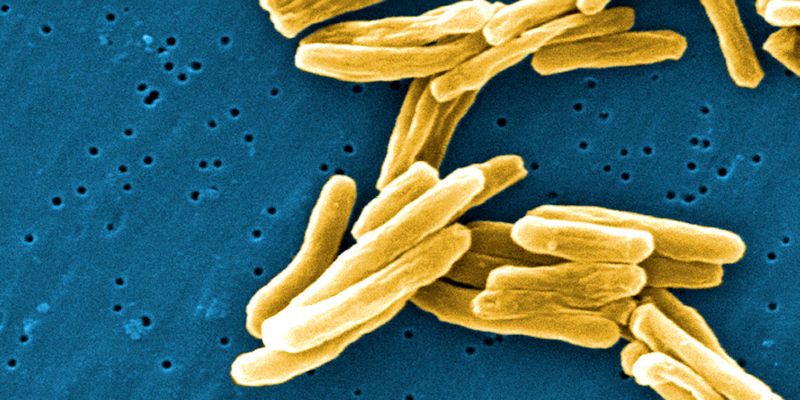
A landmark study could herald a quicker, more tailored treatment for the millions of people around the world living with tuberculosis (TB).
An international consortium, which includes the University of Leeds, has shown how our understanding of TB’s genetic code is now so detailed that we can predict which commonly used anti-TB drugs are best for treating a patient’s infection and which are not.
This study, led by the University of Oxford and facilitated by the UK government’s 100,000 Genomes Project in partnership with Public Health England, is by far the largest of its kind, covering more than 10,000 TB genomes from 16 countries around the globe.
Co-author Professor Mark Wilcox, a medical microbiologist from the University of Leeds, said: “This study represents an important step forward in providing faster antibiotic susceptibility results for the bacteria that cause tuberculosis. Results that used to take weeks can now be delivered in days.
“NHS patients now benefit from this advance through a national service supplied by Public Health England.”
UN Meeting on ending tuberculosis
The paper, ‘Prediction of Susceptibility to First-Line Tuberculosis Drugs by DNA Sequencing’, was published on Wednesday 26 September in the New England Journal of Medicine, and its findings announced at the United Nations General Assembly high-level meeting on tuberculosis.
The study revealed a much greater accuracy in predicting the susceptibility of the bacterium to anti-TB drugs than had been expected.
Lead investigator, Dr Tim Walker, from the University of Oxford’s Nuffield Department of Medicine, said: “This study represents a paradigm shift away from a dependence on testing drugs against bacteria in culture and towards the genetic era.
“With ever-faster and more portable DNA sequencing technologies being developed, this advance means that we are now much closer to delivering tailored therapy to TB patients around the world whose treatments have so far been largely based on a ‘best guess’. Giving the correct drugs to more patients will improve cure rates and help stop the spread of drug-resistant strains.
Professor Chris Whitty, Chief Scientific Adviser for the Department of Health and Social Care (DHSC), said: “Developing more effective approaches to treating multi-drug-resistant TB is crucial for the thousands of people affected in the UK and millions worldwide. This study is just one example of how the government is supporting research into how new technologies can help us tackle drug-resistant infections and thus preserve the effectiveness of current antibiotic treatments.”
World's biggest infectious disease killer
Tuberculosis remains the world’s biggest infectious disease killer, claiming 1.7 million lives in 2016. The number of drug-resistant cases is rising, meaning new strategies and interventions are urgently needed if the World Health Organisation’s (WHO) target to end the global TB epidemic by 2035 is to be met.
One of the key interventions for achieving this target – and saving millions of lives - is getting the correct drugs to patients in a timely manner.
Since TB-antibiotics were first introduced 70 years ago, tests to determine which antibiotics will best treat an individual patient have depended on growing the bacteria in a laboratory, a process that takes weeks or even months. These difficult and slow tests remain out of reach for most of the world’s TB patients, leaving many on the wrong combination of drugs and with a reduced chance of cure and survival.
It is estimated that only 22 per cent of an estimated 600,000 patients requiring treatment for multi-drug-resistant tuberculosis received diagnoses and were treated in 2016, which has facilitated the spread of multidrug-resistant strains.
The analysis conducted by the researchers, who looked at all major strains of TB, suggests that whole-genome sequencing can now characterise profiles of susceptibility to first-line anti-tuberculosis drugs with a degree of accuracy sufficient for clinical use.
“NHS patients now benefit from this advance through a national service supplied by Public Health England.”
The paper says: "The importance of this is twofold: first, it shows that the genomic approach could be used to guide the choice of which drugs to prescribe and not just which drugs to avoid, in a way similar to phenotyping; second, the data can be used to support plans to reduce the workload associated with culture and sensitivity analysis in places where routine whole-genome sequencing is performed."
The improved knowledge of the genomic variations of TB should lead to more accurate PCR tests for the disease.
The results of this study have already led to decisions in England, the Netherlands and by the Wadsworth Centre for Public Health, New York State, to reduce reliance on bacterial culture and deliver treatment according to DNA sequencing results alone.
This international research was supported in the UK by the Department of Health and Social Care through the National Institute for Health Research, Public Health England and the 100,000 Genomes Project. The research also received support from the Medical Research Council, the Wellcome Trust, and the Bill and Melinda Gates Foundation.
Imperial College London and the London School of Hygiene & Tropical Medicine were also involved in the research.
Notes to Editors
For further information please contact University of Leeds Press Officer Simon Moore on 0113 34 38059 or s.i.moore@leeds.ac.uk.